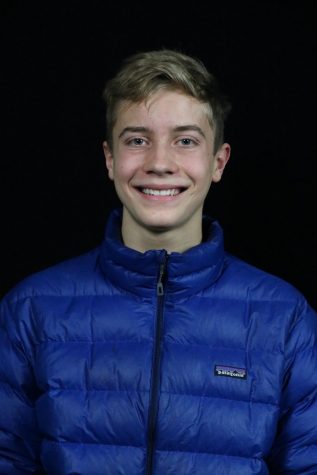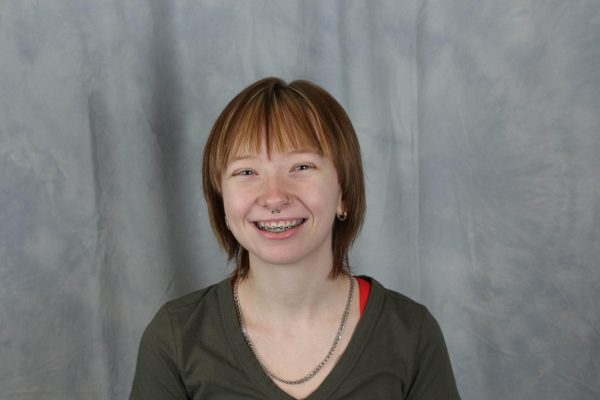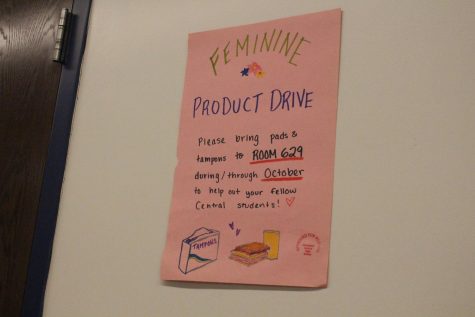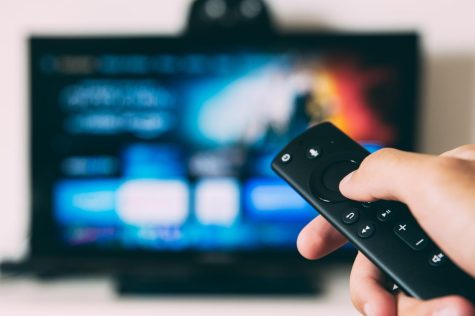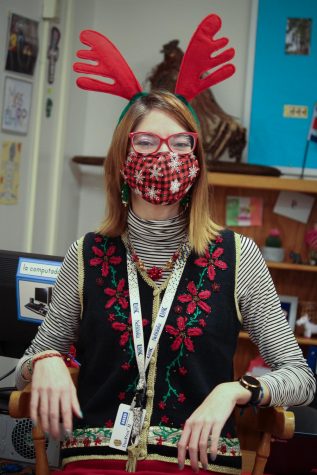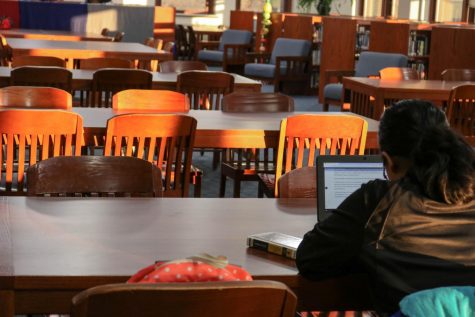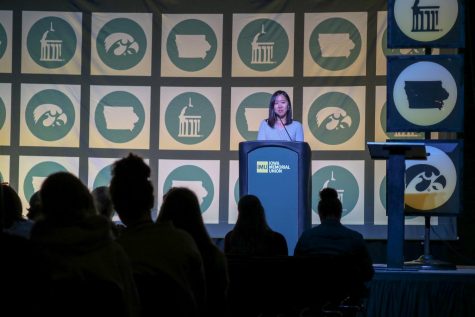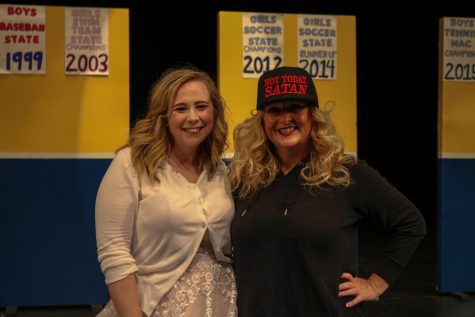Frank Klipsch’s Time as Mayor
An exclusive look into Mr. Klipsch’s two terms in office
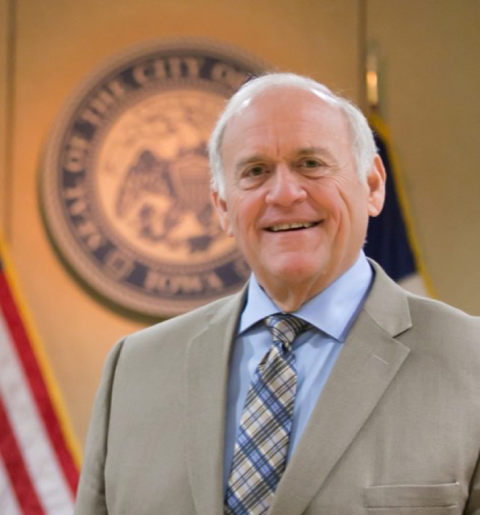
Provided thanks to Frank Klipsch
February 6, 2020
I sat down with former mayor Frank Klipsch (who happens to be my grandfather) and asked him a few questions about his exciting time in office. During his terms he faced broken floodwalls, forged new relationships, and learned some valuable lessons along the way. Here’s some of the best bits of our conversation.
What was the biggest challenge of running for office?
I think the biggest challenge was to determine if I wanted to [run in the first place] – in relationship to my family, my previous occupation, the amount of time it would take, and the fact that I had never had an elected office before. So, taking all that into consideration, and then finding out [that] there was initial support . . . I decided to move forward.
You are politically independent, which is not common. Why?
Well, I’ve always been an independent since I first was eligible to vote. I find that I much prefer finding the issue or the person that most aligns with my personal views and not to feel obligated to choose a particular party to be affiliated with. It gives me the flexibility to pick the best topics, the best people, and the best positions that fit best from what I have in mind in my life, and what I think are important, and then move forward from there. And I think that’s also married with the idea that if you’re trying to bring all people together, find what they mutually agree upon and build on that. The current political climate, the partisan political climate, really pulls you away from that and causes division. When somebody says they’re republican or democrat, it immediately causes division, and I like to find the middle ground and build upon that.
What was your strategy for winning the mayoral race?
Well, first of all, I said from the very beginning that I was going to be very positive and talk about what I wanted to do and play upon my experiences as a long term community leader and YMCA director. Basically, that was, again, bringing people together and finding commonality and things that we can work together on.
Secondly, I decided not to say anything negative about anyone else. I think that is a bad way to live your life, so instead of saying something negative about someone else, I just talked about what I was planning on doing. The quote I like to use is that “It’s never right to try to blow out someone else’s candle to make yours seem brighter” so I’ve taken that approach and didn’t say anything negative about my opponent or opponents even in the earlier stages before the primaries, and focused on what I wanted to do.
Thirdly, it was going to take a lot of hard work. I was not well known as a political figure. I had a lot of name recognition because of my years with the YMCA and involvement in the community. So I literally walked the entire community. . . door to door, knocking on doors. . . and then had to fundraise. I had experience in fundraising, but when you have to raise money for the campaign, meaning you got to send out flyers, you got to get time on the radio, you got to do all the material things that you need to do, the marketing and advertising you need to do, so I worked very hard at that and raised . . . I think it was a record amount of money for a mayoral campaign . . . and I think that was important to tell the story, because it comes down to getting people to understand who you are, what you believe, and what you’re going to try to do for the community.
During your campaign and your terms in office you faced criticism from a variety of people. How did you handle that criticism?
Well. . . if you always do what’s right you never have to remember what you said or what you did. I always focused on what I thought was the important thing to do for the community and for the citizens, and, when you have, in our case in Davenport 103,000 people or beyond, there’s always people that have a different view. It was difficult, at times, when people would be publicly critical, because I was concerned about my family, my wife, my children, my grandchildren, and the position and reputation that I’ve had for my whole life. . . but I’ve found that if you in fact do what is right, focus on what is right, it’ll eventually take care of itself.
What was the first major problem you tackled during the beginning of your first term, and how did you solve it?
One major issue that’s been tied into my long-term campaign is the flooding. You know, we’ve had some significant flooding and the feedback has been very positive as to how I’ve handled it. We are a leading community along the Mississippi river. So, being a leader of the position that we want to be very environmentally sound, be very resilient flood-wise as well as create a world-class riverfront with clean water [is very important]. It gets a lot of attention.
The other item of course that is ongoing as a challenge is crime and especially juvenile justice issues. I’ve had a task force I’ve put together to work on that, to help figure out ways we can come together, because we can’t arrest our way out of those challenges. We’ve got to get the to the root cause.
One of your biggest strengths is creating meaningful relationships between very different people. How do you do this?
Well, I think the lighthearted statement is, “You’re given two ears and one mouth because you should listen twice as much as you talk”. I think getting to know people and what is important to them is the first step, so I try to be one of the first people in town to meet new people coming to town, whether they be the top guy at Canadian Pacific Railroad, or the head of the bank, or the head of the new church, or the head of the new mosque, or business, or developer. . . but also, regular folks. The folks that are just members of the community, seeing their stores or whatever [their work may be], and getting to know people and where they’re from. I think all of the sudden it’s not, “Who’s gonna go talk to the mayor and the guy that works for the railroad?”; [Instead,] it’s, “Frank is gonna talk to Tracy at the railroad,” and developing that kind of one on one relationship [that] opens the door to have much better, meaningful discussions.
Did being mayor change your view of Davenport? How so?
It really enhanced it. I didn’t realize how complex a city of this size, in many cases any city, is. The city has about a thousand employees. There’s a tendency that I think people have that, you know, “they’re just government employees.” I’ll tell you, we have a tremendous group of employees that are not only very hardworking and very focused on making our community better but are also extremely talented and extremely professional. We have accredited departments throughout the whole city, which a lot of cities don’t [which means that] they go the extra level to make sure they’re the top they can possibly be.
And, on the other side of it, which is frustrating, there’s a lot of people who don’t really know what’s going on. You really need to know so much more about what’s happening before you make a decision.
An example would be potholes and street repairs. Every street in town is surveyed and put on a priority list of when those streets need to be repaired. So, if you’re on a street that gets thousands of cars, that’s going to be higher on the list than the street that a couple cars come by once a day. So, people have to understand. But [many] don’t.
So, there’s a lot more complication to it, [but] there’s a lot of people that really love and care about their community, [and] there’s staff that are really dedicated to improving it at all times.
And finally, what advice would you give to your successor, Mike Matson?
Well, I think that partnership and collaboration is extremely important. He’s been in office as an Alderman for 12 years, I think, so he knows the operation of the city. I think it’s a matter of making sure we listen to all sides going into it, without any fixed agenda.
Secondly, one thing that I didn’t fully understand [is] how important it is for a lot of people to have the mayor involved and at events. One of the reasons I didn’t run again was, talking to my family, one of my sons said, “If you run again, seven of your ten grandkids are going to be in high school and college.”
I didn’t want to miss that. The job that is supposed to be part time, [but] I basically have been spending about 65 hours a week doing it. If you [want to provide] the full perspective that you can provide, it takes more. If you just want to cross the T’s and sign the documents and those kind of things, you can probably do that with less hours. I’ve just found that, if I’m going to do it right, I’m going to fully invest myself in that process and it takes a lot of time.
So I would ask and suggest to him [to] balance the stuff that he’s doing with the mayor job, because it is a big deal for people to have the mayor in attendance, and it creates a better relationship in the community.
Lastly, I would tell him that I am here for him as well. Any time he needs any help, as I’ve told him, he’s my mayor now, and I want to do whatever I can for the good of the city and help him in doing it.



